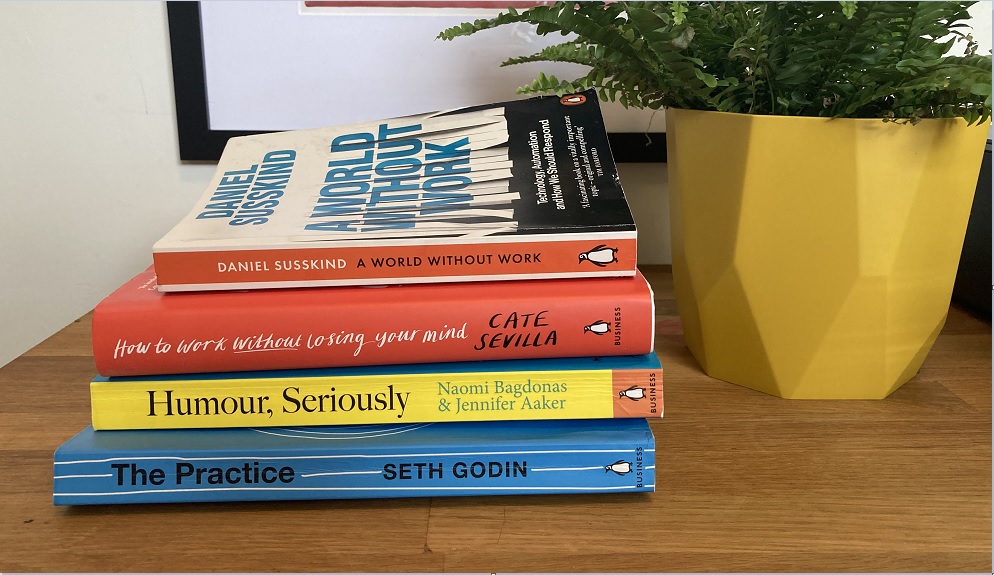Over the Easter holidays we’ve been catching up with our reading. Here are our favourite books that we’ve dicovered recently.
Humour, Seriously: Why Humour Is A Superpower At Work And In Life by Jennifer Aaker and Naomi Bagdonas really got us thinking about why laughter is one of the most underrated leadership tools ever. It may be even more important for creating rapport within remote teams.
Did you know that the average four year-old laughs up to 300 times a day, while the average forty year-old laughs 300 times every two and a half months? Aaker and Bagdonas are two Stanford University business school academics who are on a mission to show why using humour at work doesn’t make you any less serious or professional, and can increase employees’ respect for you as well as sparking creativity and strengthening relationships. Before you start worrying that you need to channel Michael McIntyre on your next Zoom call, Aaaker and Bagdonas argue that the bar is lower than you think. Just having a sense of levity will demonstrate your human side and help you share moments of joy with colleagues. A good chunk of the book is a useful ‘how to’ manual for how to do this. We loved Humour, Seriously and will be referring to it regularly.
Speaking of creativity, The Practice by Seth Godin asks how we can innovate. This is a question we’re getting asked a lot at the moment in the context of remote working, when many of us are feeling tired and not especially creative after a difficult year. This is a hopeful book which demystifies creativity. Godin shows us that committing to being creative consistently is the realmagic of innovation. He also points out that experiencing imposter syndrome is a sign that you are doing the right thing, because you are operating outside your comfort zone. If your job involves innovation in any way, however small, this is a great book to dip into.
It’s predicted that one of the after effects of the pandemic will be an acceleration of automation. A World Without Work by Daniel Susskind explains how all kinds of job are at risk of being auomated. This may lead to greater prosperity but also technological unemployment. What will you do if not just your role but your profession becomes automated? Whilst Susskind is ultimately hopefful about how this will change society and encourage governments to redistribute wealth I think this is an important read for any leader imagining what their organisation may look like 10 years from now.
Finally, a book we’ll be recommending to colleagues starting out in the workplace is How to Work Without Losing Your Mind by Cate Sevilla. Whether it’s operating within a difficult culture, managing challenging relationships or getting to know a new boss this book is full of practical tips.It also covers what to do if you feel overwhelmed by your workload or are struggling to feel motivated. This book will be helpful for managers too, especially those who want to support their teams more effectively by putting themselves in their colleagues’ shoes.
Which books are inspiring you at the moment?

